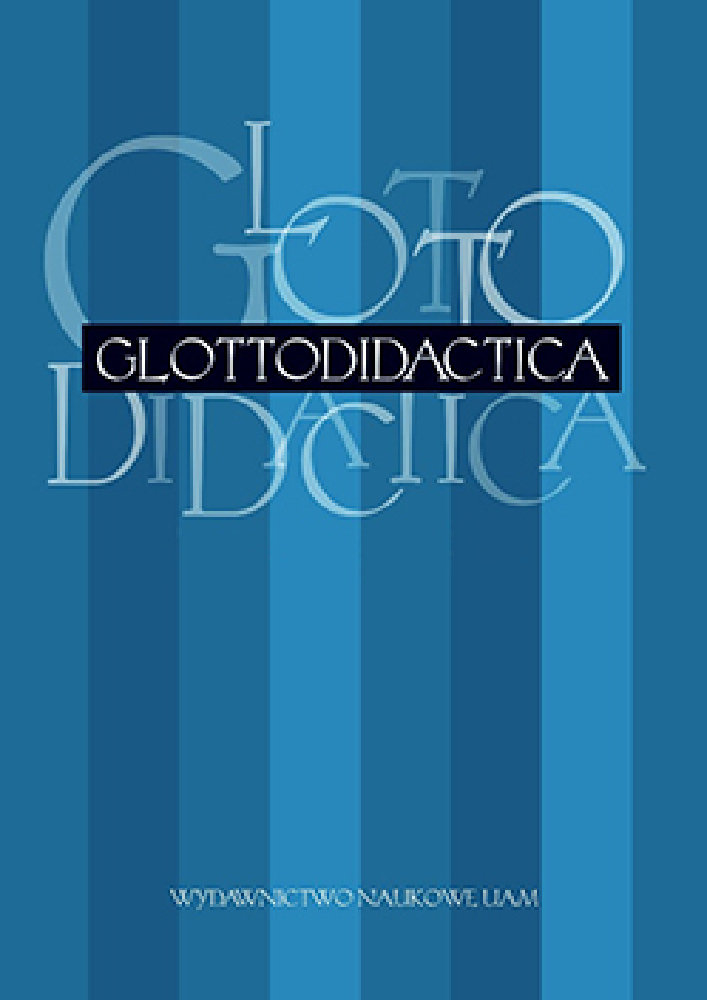Abstract
This paper deals with the pedagogical implications of a series of studies on linguistic awareness. Adult learners, native- and near-native speakers of English were studied for their knowledge of equivalence and contrast relations between reflexive and emphatic -self constructions, on the one hand, and the possible interpretations of French pronominal-verbal constructions, on the other. In the pilot study, adult Francophone learners of English and an Anglophone control group judged the grammaticality of sets of sentences, one of which presented -self constructions that were grammatical as reflexives, as emphatics, as both, or as neither. The original purpose of this combination was to study the relation between objective ambiguity and grammaticality judgments. The results suggested not that syntactic ambiguity led to incorrect grammaticality judgments, but that garden-path (or “hard-to-get”) readings of constructions which globally are asymmetrically ambiguous are associated with incorrect judgments of ungrammaticality. That is, the only reading on which a given sub-type of construction is grammatical can be unknown to learners and even undetected by native speakers.References
Bever, T.G. 1970: The cognitive basis for linguistic structures. In: Hayes, J.R., editor, Cognition and the Development of Language. New York: Wiley, 279-362.
Birdsong, D. 1989: Metalinguistic Performance and Interlinguistic Competence. New York: Springer.
Botha, R.P. 1973: The Justification of Linguistic Hypotheses: Study of Non-Demonstrative Inference in Transformational Grammar. The Hague: Mouton.
Chaudron, C. 1983: Research on metalinguistic judgments: A review of theory, methods and results. Language Learning 33, 343-77.
Clark, H.H. and Haviland, S.E. 1974: Psychological processes as linguistic explanation. In:
Cohen, D., ed., Explaining Linguistic Phenomena. Washington, D.C.: Hemisphere, 91-124.
Connors, K. 1992: Judging the grammatically of ambiguous sentences in a second language. Paper presented at the XVth International Congress of Linguists.
Connors, K. and Dancette, J. 1990: Text comprehension and linguistic awareness in advanced learners of English. Paper presented at NWAVE XIX.
- 1991: Conprehension de textes et conscience linguistique chez les apprenants d ’une langue seconde. Paper presented at the Annual Meeting of the Canadian Association of Applied Linguistics.
Coppieters, R. 1987: Competence differences between native and near-native speakers. Language 63, 544-73.
Fodor, J.D. and Inoue, A. 1994: The diagnosis and cure of garden paths. Journal of Psycholinguists Research 23, 407-34.
Labov, W. 1972: Sociolinguistic Patterns. Philadelphia: University of Pennsylvania Press.
Levelt, W.J.M. 1974: Formal Grammars in Linguistics and Psycholinguistics. 3 volumes. The Hague: Mouton.
Marks, L.E. 1967: Judgments of grammaticalness of some English sentences and semi-sentences. American Journal of Psychology 80, 196-204.
Pritchett, B.L. 1988: Garden path phenomena and the grammatical basis of language processing. Language 64, 539-76.
Quirk, R., Greenbaum, S., Svartvik, J. and Leech, G. 1985: Comprehensive Grammar of the English Language. New York: Longman.
Rayner, K. and Sereno, S.C. 1994: Regresive eye movements and sentence parsing: on the use of regression-contingent analyses. Memory and Cognition 22, 281 85.
Trueswell, J.C. and Tanenhaus, M.K. 1991: Tense, temporal context and syntactic ambiguity resolution. Language and Cognitive Processes 6, 303-38.
Van Kleeck, A. 1982: The emergence of linguistic awareness: A cognitive framework. Merrill-Palmer Quarterly 28,237-65.
Wamer, J. and Glass, A.L. 1987: Context and distance-to-disambiguation effects in ambiguity resolution: Evidence from grammatically judgments of garden path sentences. Journal of Memory and Language 26, 714-38.
License
Authors
Authors of texts accepted for publication in Glottodidactica are required to complete, sign and return to the Editorial team’s office the Agreement for granting a royalty-free license to works with a commitment to grant a CC sub-license.
Under the agreement, the authors of the texts published in Glottodidactica grant Adam Mickiewicz University in Poznań a non-exclusive, royalty-free license and authorize the use of Attribution-NoDerivatives 4.0 International (CC BY-ND 4.0) Creative Commons sub-license.
The authors retain the right to the free disposal of the work.
Users
Interested Internet users are entitled to use works that have been published in Glottodidactica since 2016, under the following conditions:
▪ attribution – obligation to provide, together with the distributed work, information about the authorship, title, source (link to the original work, DOI) and the license itself.
▪ no derivatives – the work must be preserved in its original form. Without the author's consent, it is not possible to distribute the modified work in the form of translations, publications, etc.
Copyrights are reserved for all texts published before 2016.
Miscellaneous
Adam Mickiewicz University in Poznań retains the property right as a whole (layout, graphic form, title, cover design, logo etc.).
Privacy statement
The names and email addresses published on this journal site will be used exclusively for the purposes declared by this journal and cannot be used for any other purpose or by any other party.




